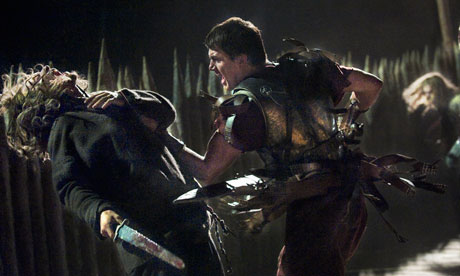
The Ninth "Hispana" Legion, mutinous and undisciplined, has been lost forever in the wild north of Roman Britain, along with its commander. Lost with it is its totemic eagle standard, plunging the legion's name into ignominy. The commander's son, Marcus Flavius Aquila, sets out with Esca, his British slave, to discover what became of the standard and of his father's 4,000 men.
The Eagle of the Ninth is an intensely memorable children's classic, full of marsh mist, hurt pride and high courage; fans will be excited to hear that a film adaptation, The Eagle, is released this week. Animated by author Rosemary Sutcliff, the average schoolchild's bare-bones knowledge of life in the Roman legions acquires fascinating flesh as Marcus undertakes his desperate journey.
What makes the book so extraordinary is the combination of historical detail and enthralling narrative elements: there's friendship between Roman and Briton, master and slave, and brothers in arms. There's love. There's fear, suspense, danger and mysticism. My favourite aspect of the book, though, is Sutcliff's exploration of home and identity, and how the two define each other. Marcus comes to realise that however deeply he yearns for the warm, fertile sweetness of his childhood's Etruscan farm, the wild bitterness of fox-rank, sodden Britain is now still dearer to his heart.
Sutcliff brings the reader's senses alive – her tracks are strengthened by "corduroys of logs", her forests "boar-hunted", her burning wood collapses "with a tinselly rustle" into the fire. May The Eagle live up to such an auspicious provenance.

